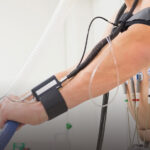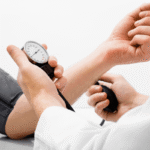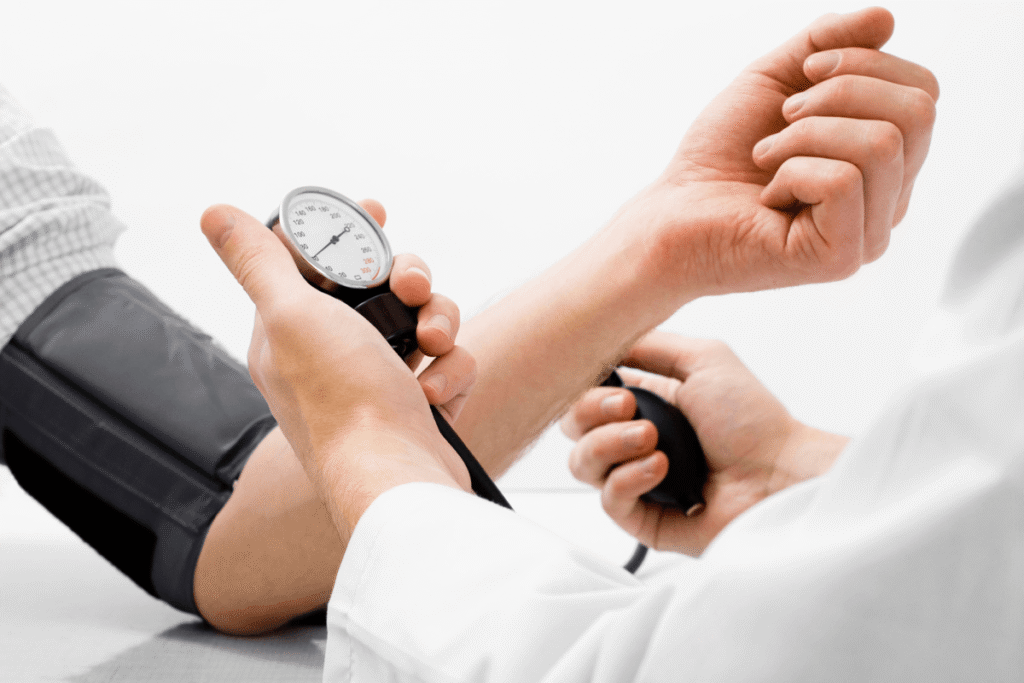You may not feel any different, but your blood pressure could be creeping up, slowly, silently, and steadily. For many busy professionals and parents, a packed schedule, convenient meals, and too little sleep have become the norm. But these everyday habits may be contributing to a condition that affects nearly 1 in 4 adults in Singapore: hypertension, or high blood pressure.
Often called the “silent condition,” hypertension rarely shows obvious symptoms in its early stages. Left unmanaged, it increases the risk of heart disease, stroke, and kidney complications. The good news? Small changes in your daily routine can help make a meaningful difference.
Habit 1: Constant Stress Without Recovery
A demanding workload, tight deadlines, and the pressures of parenting can keep the body in a state of ongoing stress. This triggers the release of stress hormones such as cortisol and adrenaline, which temporarily raise blood pressure by narrowing blood vessels and increasing heart rate.
Over time, chronic stress may contribute to sustained high blood pressure and unhealthy coping behaviours, such as emotional eating, smoking, or drinking more alcohol than usual.
What You Can Do:
- Incorporate short breaks throughout the day to reset.
- Try breathing exercises or a 5-minute walk to ease tension.
- Consider winding down with quiet time before bed instead of scrolling or working late.
Habit 2: High-Salt Meals, Even Without Realising It
You may not reach for the salt shaker, but sodium hides in many common foods, instant noodles, canned soups, frozen meals, sauces, and even breakfast cereals.
A high sodium intake can cause the body to retain water, putting extra pressure on the blood vessels. This is particularly important for individuals with a family history of hypertension or existing cardiovascular concerns.
What You Can Do:
- Read food labels when grocery shopping, look for products marked “low sodium” or with a Healthier Choice Symbol.
- Cut down on processed foods and sauces.
- Choose fresh ingredients when preparing meals, and flavour with herbs, spices, or lemon instead of salt.
Habit 3: Poor Sleep Patterns
Inconsistent or insufficient sleep affects more than just energy levels. Studies show that poor-quality sleep can influence hormones that regulate blood pressure and heart function.
Conditions like sleep apnoea, where breathing pauses repeatedly during sleep, are also linked to hypertension and often go undiagnosed. Waking up frequently at night or feeling unrefreshed in the morning could be warning signs.
What You Can Do:
- Aim for 7–8 hours of sleep each night.
- Establish a regular bedtime and minimise screen time before sleep.
- If snoring or disrupted sleep is a concern, consider speaking with your doctor.
Habit 4: Skipping Regular Health Checks
Because hypertension typically has no symptoms in the early stages, many people don’t know they have it until complications develop. Regular blood pressure checks, whether at a clinic or through a home monitor, are an important part of prevention and early detection.
What You Can Do:
- Schedule a yearly health screening.
- Monitor your blood pressure at home if you are at higher risk.
- Talk to your doctor about your lifestyle, even if you feel well.
It's the Small Habits That Add Up
You don’t need a complete lifestyle overhaul to start protecting your heart. By being more mindful of your stress levels, dietary choices, and sleep quality, you’re already in the right direction.
At Heart Matters Cardiac Centre, we offer blood pressure monitoring and assessments as part of our comprehensive cardiac health screening.
If you’re unsure about your blood pressure or would like to learn more about reducing your cardiovascular risk, speak with our team.















